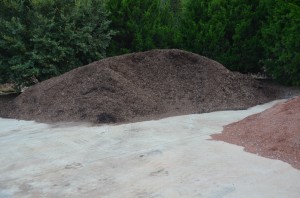Often, spring arrives with too many gardening chores to handle. Some work can be shifted to the fall. Since a garden is only as good as its soil, fall is a good time to till your garden or to construct new beds. Add soil amendments such as deciduous leaves and pine needles which nature is providing for free. Till amendments into the soil with a shovel, multi-tined garden fork, or rototiller.
You may add organic nitrogen sources such as blood meal, animal manures (either packaged or fresh from a nearby farm). Fresh manure may be too hot to use in the spring, but will lose its hot urea properties over the winter. Incorporate digested (decayed) compost pile(s) into your garden soil. Soil microbes do most of the work decaying the organic additives over winter.
Shredded leaves, eggshells, coffee grounds, and fruit peels are all great soil additives; most will break down before spring planting season arrives. Caveat: huge quantities of undigested materials can rob the garden plants of nitrogen next summer. In such cases, you may need to add lots more fertilizer to feed both the garden plants and soil microbes.
The final step before spring is test the garden soil at a state soil lab operated by your state land grant university. Some full-service garden centers may also provide soil testing. Collect the soil sample before the lab’s mad spring rush begins. The local county or area Extension agent will interpret the diagnostic results for you.
The amended soil will be a lot easier to plant into next spring. Fall tilling also buries weeds and weed seeds to reduce this chore next summer.


 Posted in
Posted in 
